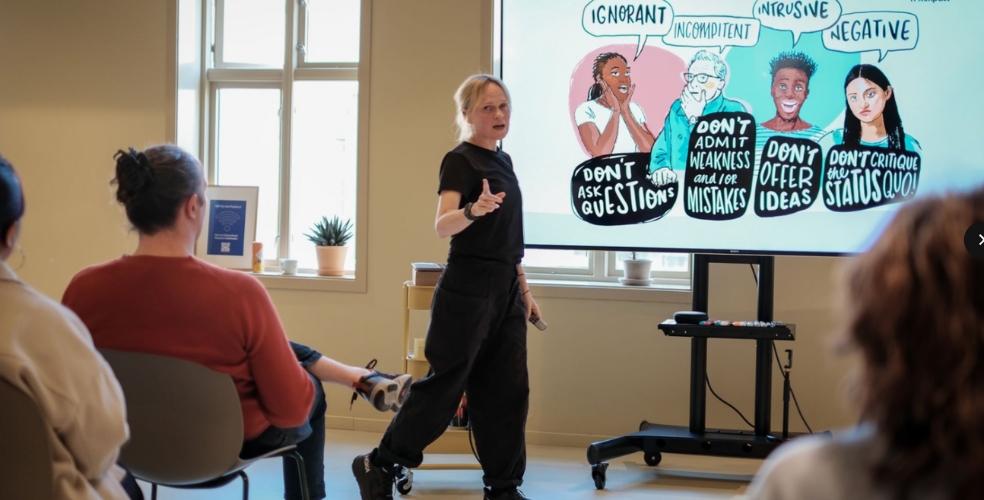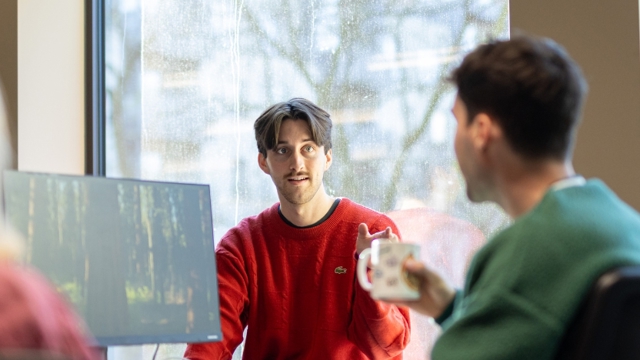As leaders, and as a society, the scale and complexity of the challenges we currently face is extraordinary.
Alongside huge geopolitical instability we have the erosion of trust and faith in power and truth: whether that’s our national politics or our mainstream media, the overall impact of this is a destabilisation of our collective and individual sense of security, safety and morale.
Add to that extreme weather events, an inflation rate of 11%, and our neighbours — perhaps even some of our colleagues — using community supermarkets and food banks.
Against this backdrop, are regular, if not daily, reminders of the fragility of our living systems, each scratching away at our resilience and that of our teams. It’s this backdrop that makes the need for kindness and compassion so essential. Few of us leave our worries at the door when we come to work. They’re there, with us.
We can’t fix this alone
So, despite all of that, how do we find the reserves of energy, enthusiasm and hope to lead through change and adversity? To paint a picture of a future around which we can galvanise others, and do so without repeating the broken patterns of the past?
Perhaps even more importantly, how do we do that whilst resisting the lure of situating ourselves centre stage as chief problem solver: choosing instead to create spaces for collective endeavour even when it risks slowing us down or further complicating things.
I’d hazard a guess that most leaders are naturally inclined to lean into the problem. However big, we tend to fix and solve. That may bring relief to some of those around us, but it also takes space and oxygen from others.
The messy interconnectedness of the challenges already with and ahead of us requires collaborative and collective action — systems-level responses, designed for and around complexity.
To find appropriate solutions, we need to create space, enabling a plurality of voices and approaches. And it’s not just more voices, it’s different voices and actors — and the inclusive spaces in which to have those conversations.
We need meaningful dialogue. And we need to be open to where those conversations will take us.
Changing the way we work together
At an organisational level, this requires us to cede control and move to less directive models. It also requires us to look beyond our own organisational boundaries. We’ve often said, for example, that local councils need to play a convening role to have any hope of reaching their goals around net zero. None of us should pretend to have all the answers; it’s only by finding ways to work together that we’ll be able to tackle our most complex problems in a meaningful way.
The challenge we face is harder as we’re often now working through newly distributed teams, no longer convening daily in a central hub.
It’s harder still in this age of employee activism: when our people rightly expect more transparency, accountability and action on major issues, be that the cost of living, or racial and gender equity. And when citizens also have profoundly different expectations around access to public services and support systems.
Look to your values, listen to different voices
Despite that mountain of challenge, there’s also a lot of hope and huge opportunity!
Values of integrity, compassion and resilience will serve us well. We are human. As teams and units, we need to break the challenges down into manageable, human scale chunks; create fast feedback loops, so we can learn and share our learnings quickly. This speaks to digital — not as a product suite, but as a mindset and ways of working.
A lot will rest in our ability to connect and level with people — being real, being honest, being vulnerable. That requires a willingness to understand problems through different lenses and perspectives.
Where it works well, there’s a sharing of power. We hear the word fabric mentioned a lot in the local government space, when we talk about trying to improve things. It favours the relational over the transactional — proactively making time to connect; to understand the needs and agendas or objectives of people, knitting, stitching and repairing around the places where we have shared endeavour.
In short, being human, being real; not just embracing change, but being willing to create and hold (but not fill) the space for new possibilities.
It’s also about kindness and compassion. This is an undeniably big part of how we encourage new and different voices to participate in those spaces, creating the collective action we need to truly make a change.

Our time at Canoe Norway
Three events, one thread at Canoe Norway – TPXimpact’s Head of Learning Design talks feedback, conflict and a whole heap of bravery
Read moreOur recent insights
Transformation is for everyone. We love sharing our thoughts, approaches, learning and research all gained from the work we do.

How cross-sector collaboration can transform charities
Discover how effective cross-sector collaboration helps charities create lasting change through shared goals, inclusivity, and lean governance.
Read more
Mission-led collaboration in local government
To transform local services, central government must resource and staff ambitious mission teams, helping local leaders to shape markets and build systems that work.
Read more
The role of play in building leadership skills
How play can offer local government leaders a powerful tool to break free from rigid structures.
Read more

